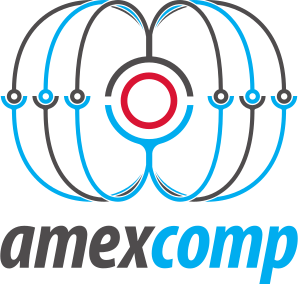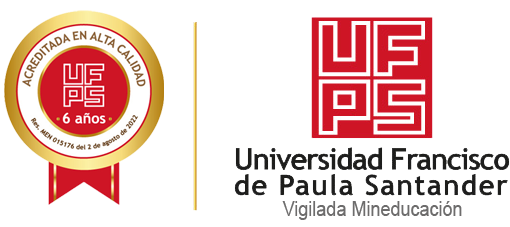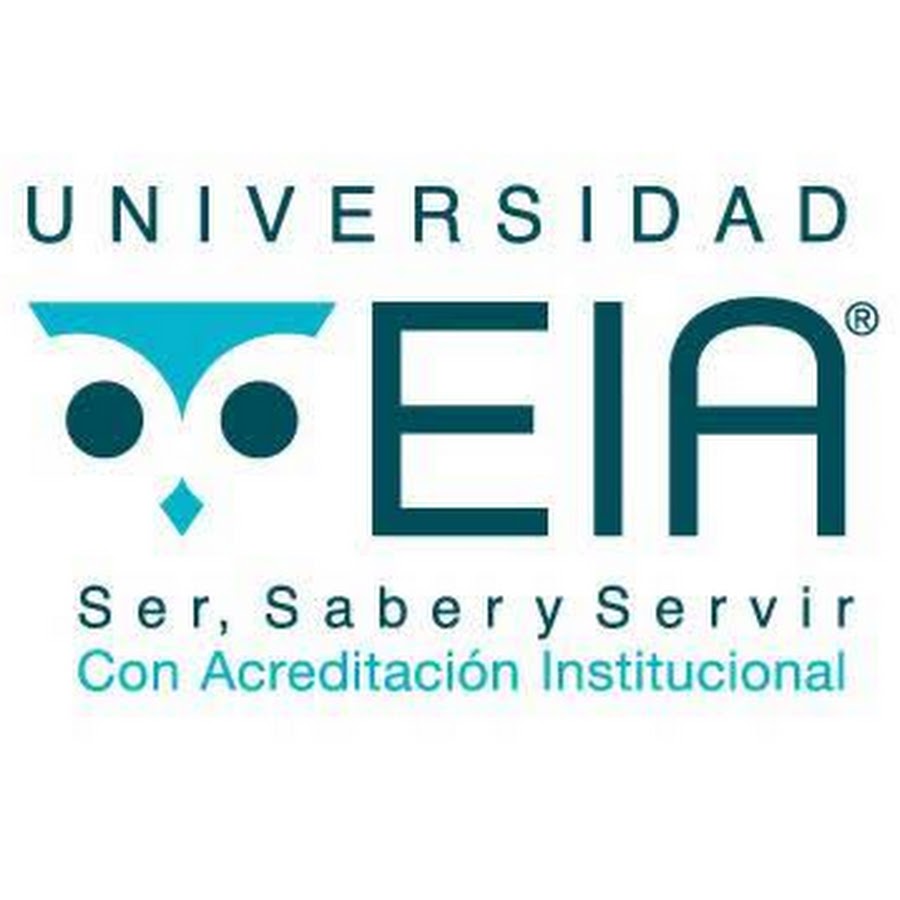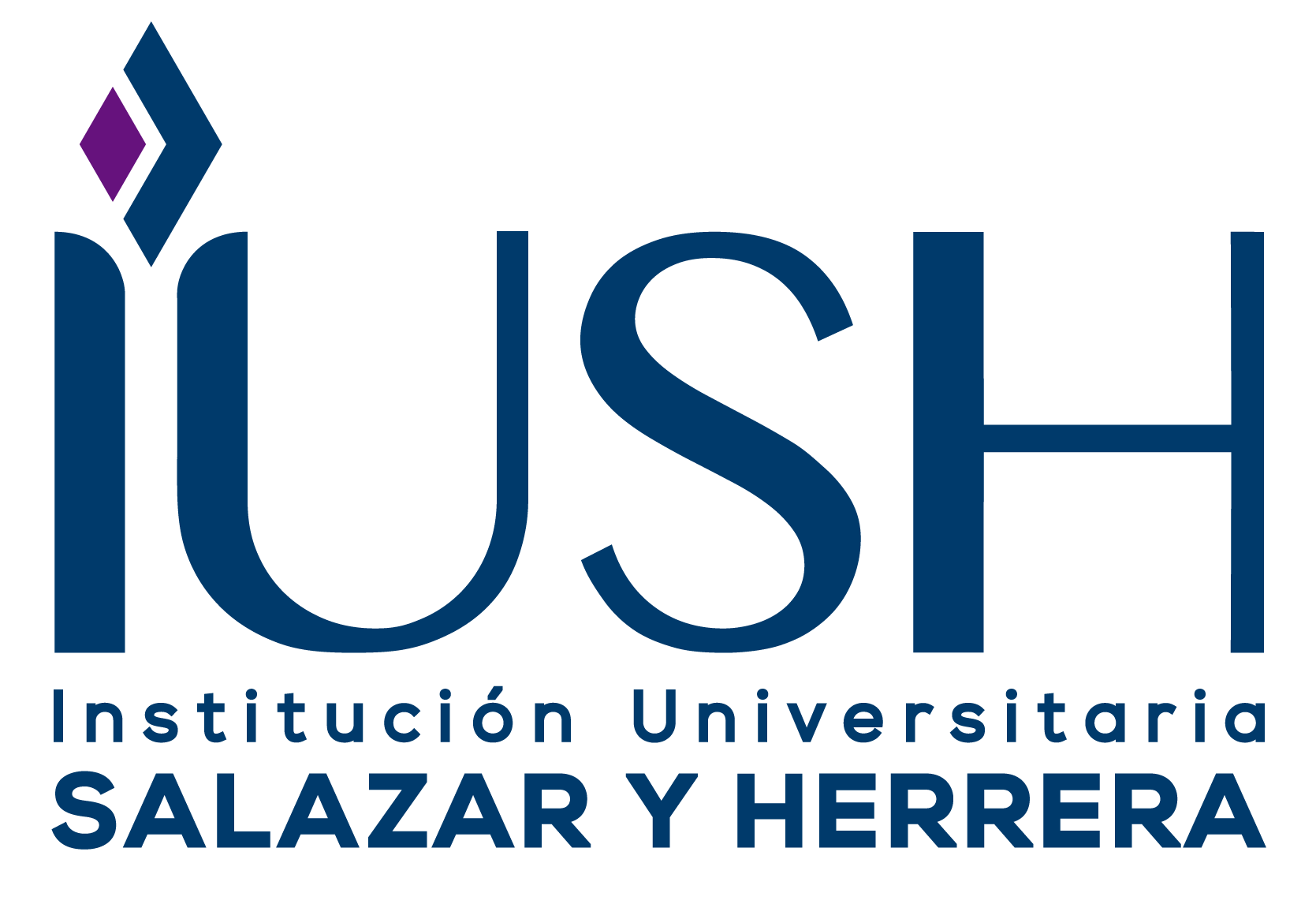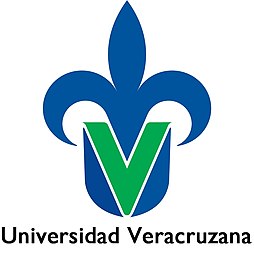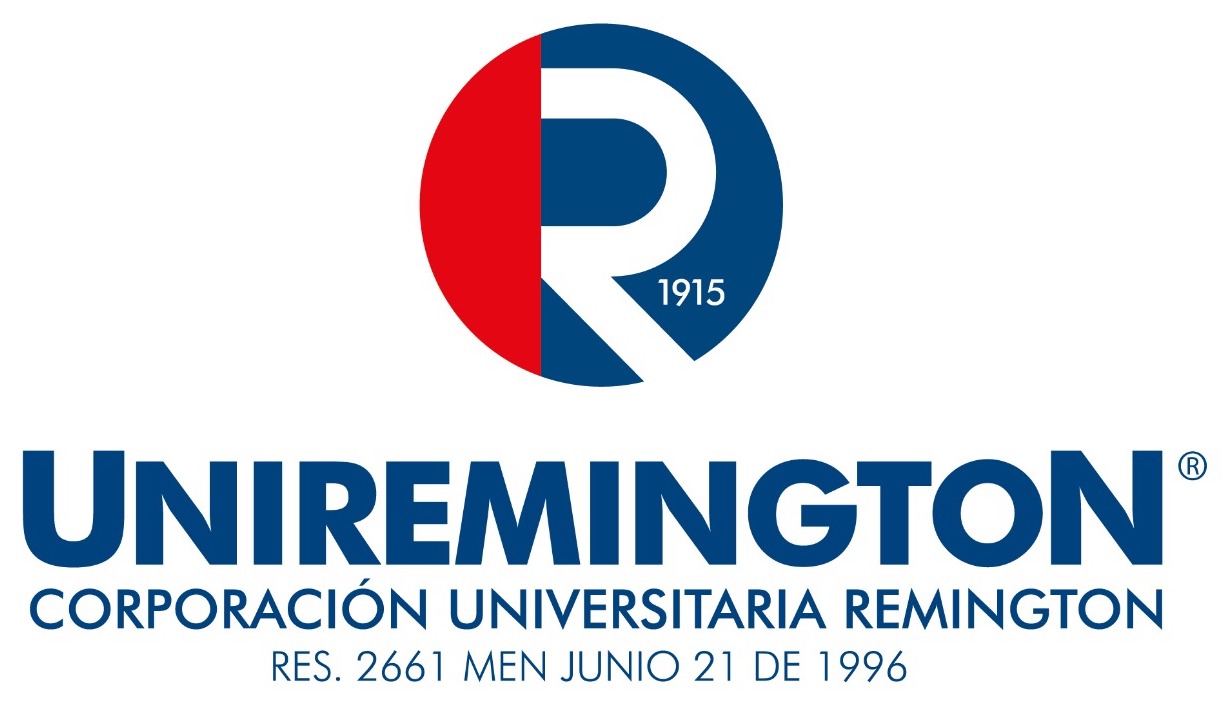
5o. Seminario Iberoamericano de Pensamiento Computacional
1 al 3 de octubre 2025
Barranquilla, Colombia
Eventos previos
Universidad de Virgina


Biographical sketch
Jennifer L. Chiu es profesora adjunta de Educación en Ciencias, Tecnología, Ingeniería y Matemáticas en la Facultad de Educación y Desarrollo Humano de la Universidad de Virginia. Su investigación se centra en aumentar el acceso de los estudiantes a los campos de la ciencia, la ingeniería, las matemáticas y la computación (STEM+CS) para fomentar la ciudadanía independiente, innovadora y crítica. Está especialmente motivada a incluir a aquellos que suelen estar subrepresentados en STEM, incluidos los estudiantes de orígenes históricamente minorizados. Chiu persigue estos objetivos estudiando cómo los entornos mejorados con tecnología pueden ayudar a los estudiantes a comprender conceptos STEM+CS desafiantes, investigando cómo la integración de tecnologías educativas en las aulas puede apoyar la participación de los estudiantes en prácticas STEM y ayudando a los maestros a comprender y promover el pensamiento de los estudiantes en diversos contextos de aprendizaje.
Pensamiento Computacional en la Educación: Evaluación, Retos y Conexiones con la Inteligencia Artificial
El pensamiento computacional se ha consolidado como una competencia clave en la educación del siglo XXI. En esta ponencia ofreceré una visión general sobre qué es el pensamiento computacional y por qué resulta esencial en contextos educativos diversos. A continuación, me detendré en una de las dimensiones más críticas y a menudo menos desarrolladas: su evaluación. Presentaré distintas estrategias, herramientas y enfoques para evaluar el pensamiento computacional desde edades tempranas, basadas en investigaciones recientes y experiencias de campo. Finalmente, exploraré brevemente cómo se conecta el desarrollo del pensamiento computacional con la alfabetización en inteligencia artificial, mostrando la relevancia conjunta en la formación del alumnado. La charla busca ofrecer tanto una reflexión teórica como propuestas prácticas que sirvan de inspiración para docentes e investigadores.
Universidad Rey Juan Carlos

Biographical sketch
Dr. María Zapata Cáceres is a professor in the Department of Computer Science and Statistics at Universidad Rey Juan Carlos (URJC). She holds a Ph.D. in Information and Communication Technologies from URJC, as well as degrees in Architecture and Computer Engineering, receiving multiple academic excellence awards. With over 15 years of experience as an entrepreneur and independent professional, María has led and collaborated on numerous projects in 3D design, animation, video games, technology, and education. She has developed several educational video games, including Blue Ant Code, a computational thinking (CT) assessment game recognized as a best practice by the EU and a finalist for the European Digital Skills Awards.
Her research focuses on computational thinking and educational innovation through video games, pioneering the use of game-based learning analytics to assess learning and student interaction. She has developed internationally recognized CT assessment tools and actively contributes to various research projects. Currently, she is Co-IP of the Erasmus+ project COTEDI, launched in late 2023, which fosters computational thinking research and educational practices on an international scale. She has received multiple awards for her academic and research contributions, including the Talent and Technology Award 2023.
Uppsala University

From classroom observation to research study
In this presentation I will share the story of how a classroom observation in upper secondary school mathematics evolved into a cross-disciplinary research project involving researchers from education, computer science education, and neuroscience.
“I understand your explanation, but I still can’t solve the problems”. This was a common response I heard from students after introducing a new topic in mathematics.
While much research in education has focused on students’ conceptual understanding, less attention has been given to learning the practice itself. My observation—first in mathematics, and later in programming—was that students, through lectures and textbooks, often grasp concepts well enough to discuss them. Yet, they may still struggle to apply those concepts in code or problem-solving. In contrast, hands-on practice appears to unlock deeper understanding and enhance their problem- solving abilities.
How does hands-on coding at the keyboard scaffold learning? What mechanisms are activated when students type code, rather than merely listen, read, or discuss programming concepts?
In this talk, I will outline how we designed our research study to explore these questions, share our findings, and discuss future directions.
Biographical sketch
Dr. Anna Eckerdal is a professor in Computing Education at Uppsala University, Sweden.
She holds a PhD in Computing Education Research and a master's degree in Scientific
Subjects Education, including Mathematics and Physics. Eckerdal has been the coordinator
for the center for Discipline Based Education Research at the faculty of Science and
Technology at Uppsala University, and has led two larger research projects supported by the
Swedish Research Council. Her primary research focus is on novice programming students'
learning processes, with particular emphasis on hands-on learning in laboratory settings and
its implications for improving teaching methodologies.
While much of Dr. Eckerdal's work has centered on higher education, she has also conducted research on programming at the school level. Her research portfolio extends to educational issues related to e.g. Threshold Concepts in Computer Science and students' learning of Software design. Currently, Dr. Eckerdal is exploring two emerging areas of interest: how to best introduce AI in schools, and emotional and cognitive consequences of long-term learning when human peers are replaced by Generative AI.
Biographical sketch
David Weintrop is an Associate Professor and the Dean's Impact Professor in the Department of Teaching & Learning, Policy & Leadership in the College of Education with a joint appointment in the College of Information at the University of Maryland. His research focuses on the design, implementation, and evaluation of effective, engaging, and equitable computational learning experiences. His work lies at the intersection of design, computer science education, and the learning sciences. David holds a Ph.D. in the Learning Sciences from Northwestern University and a B.S. in Computer Science from the University of Michigan.
University of Maryland

Purdue University

Computational Cognitive Apprenticeship for Scaffolding Individual and
Team-based Modeling and Simulation Practices
Modern engineering workplaces now use computational practices to aid in analyzing and designing products, processes, and systems. In light of the integration of these practices in the corporate workplace, educators continue to identify the breadth and depth of computation, data science, and modeling and simulation skills needed by the 21st Century’s Science, Technology, Engineering, and Mathematics (STEM) workforce. This research agenda establishes an integrated, evidence-based program of research and education centered on how people develop model-based reasoning through authentic computational practices. Through a series of design- based research studies, our goal is to understand (i) How faculty can support student model- based reasoning using computational tools? and (ii) How students can develop modeling and simulation adaptive expertise.
This presentation (1) situates the different learning challenges undergraduate engineering students experience when engaging in modeling and simulation practices; (2) identifies the different forms of reasoning used when students engage in these practices as they perform problem-solving; and (3) characterizes students’ development of modeling and simulation expertise in terms of cognitive and metacognitive knowledge. In doing so, the ultimate goal of this research program is to identify pedagogies and learning strategies that can result in students’ computational adaptive expertise. Lessons learned from these studies have resulted in a computational cognitive apprenticeship model that can be used as a guideline to support learners, individually and in teams, in using computation meaningfully for their learning and overcoming challenges when engaged in this complex practice.
Biographical sketch
Dr. Alejandra J. Magana is the W.C. Furnas Professor in Enterprise Excellence in the
Department of Computer and Information Technology and Professor in the School of
Engineering Education at Purdue University. Dr. Magana holds a B.E. in Information Systems
and an M.S. in Technology, both from Tec de Monterrey, and an M.S. in Educational
Technology and a Ph.D. in Engineering Education, both from Purdue University. Her research
program investigates how model-based cognition in Science, Technology, Engineering, and
Mathematics (STEM) can be better supported by means of expert tools and disciplinary practices
such as data science computation, modeling, and simulation. In 2015, Dr. Magana received the
National Science Foundation’s Faculty Early Career Development (CAREER) Award for
investigating modeling and simulation practices in undergraduate engineering education. In
2016, she was conferred the status of Purdue Faculty Scholar for being on an accelerated path
toward academic distinction, and in 2022, she was inducted into the Purdue University Teaching
Academy, recognizing her excellence in teaching. Dr. Magana is a Fellow Member of the
American Society for Engineering Education (ASEE) in recognition of outstanding contributions
to engineering education or engineering technology education and considerable individual
contributions to ASEE.
FFrom Lecture-Based to Zipped Teaching Format
Mounting evidence indicates that the traditional lecture-based teaching format is suboptimal for student learning; in particular, for facilitating student acquisition of practical competence, like programming. In response to this, we fundamentally changed the teaching format of our CS1 course from lecture-based (lectures followed by exercise classes) to a zipped teaching format (interleaved lectures-&-exercises). We explain how this format change addresses many of the problems with lecture-based teaching and discuss relations to (computing) education research.
We report on empirical findings based on data from teaching the CS1 course involving about a thousand students (N=963) over a period of six years. For three years (2018–20), the course was taught using the (teacher-centric) lecture-based format; then, for three years (2022–24)—the same course, with the exact same intended learning outcomes—was taught under the (student-centric) zipped teaching format. We compare the two teaching formats using proxy indicators for “course quality:”
IT University of Copenhagen

Biographical sketch
Full Professor and Head of the Center for Computing Education Research (CCER) at IT University of Copenhagen (ITU).
Ph.D. in Computer Science from the BRICS International Research Center, Aarhus University (2003). Has worked with Programming Language Research (2000s) and Variability & Software Product Lines (2010s), but now works exclusively with Computing Education Research. Has also worked with educational development and is the writer, director, and co-producer of the award-winning educational short-film “Teaching Teaching & Understanding Understanding” (2006), used around the world for educational development. Recipient of the (first) Danish National Teaching Award 2020 (awarded to two out of approximately 18,000 university teachers in all of Denmark).
From Classrooms to Research: The Evolving Landscape of K–12 CS Education
The field of K-12 computer science (CS) education is rapidly evolving, yet disparities remain in how different regions approach its integration. This talk explores the current landscape of CS education in the United States, highlighting key insights from research on effective teaching practices, learning progressions, and systemic implementation. We will examine what the research tells us—and where gaps remain—about how students learn CS and how educators can be supported in delivering high-quality instruction. With an eye toward global collaboration, we will also consider how lessons from the U.S. context may inform efforts in Latin America to build foundational and sustainable CS education systems that ensure each child has the opportunity to learn about CS.
Founder & CEO, Institute for
Advancing Computing Education

Biographical sketch
After working as a computer scientist in government and industry, Dr. Monica McGill spent over 15 years in academia teaching computer science and game design, receiving tenure at two institutions, before founding the non-profit Institute for Advancing Computing Education (formerly CSEdResearch.org). She has served as the ACM-W North America inaugural chair, Computer Science Teachers Association board member, Sjögren's Foundation board member, and member of IEEE and the American Society for Engineering Education (ASEE); and she is an active member of the ACM community, serving on various conference committees and supporting other educators and researchers through her work. She builds her research on her experiences as a professional in the field and as a researcher focused on recognizing the need for all students to learn about computing as well as its impact on their lives, knowing that different teaching pedagogies impact students differently.
AI and Education Research at
Looking Glass Ventures
in Austin, TX

Equitable and Integrative Approaches to Empowering K–12 Learners with Computational Thinking Skills
With the rise of AI education and the use of AI in education, computing and STEM education are undergoing a realignment in terms of learning goals and pedagogies. Despite these shifts, the skills encompassed by computational thinking (CT) remain as relevant as ever—if not more so—for helping students develop problem-solving abilities in today’s world. Drawing on a rich palette of examples from her research spanning PreK–12, as well as broader engagement with the field, Dr. Grover will trace a brief history of CT’s evolution over the past decade, its impact on STEM and computing education, and its growing relevance in the age of AI. She will present a suite of pedagogical strategies for leveraging CT and data science to support meaningful, integrative learning in PreK–12 CS and STEM classrooms. Dr. Grover will also share key findings, takeaways, broad frameworks, and ongoing challenges to inform K–12 education research and practice.
Biographical sketch
Dr. Shuchi Grover is the Director of AI and Education Research at Looking Glass Ventures in Austin, TX. She is a computer scientist and learning scientist by training who has been committed to PK-12 computing education in formal and informal settings for over two decades. She has led several US National Science Foundation-funded projects involving research & design of learning that helps develop 21st-century competencies in computing, data science, and AI as well as the integration of STEM, computer science (CS) and data science. She created, co-authored, and edited Computer Science in K-12: A-to-Z Handbook on Teaching Programming, a popular resource for preparing K-12 CS teachers. She advises several national and international efforts related to advancing computing and AI education at the K-12 level. She is the recipient of the 2024 Henry and Bryna David Award from the US National Academies of Science, Engineering and Mathematics.
Grover has a Ph.D. in Learning Sciences and Technology Design (Stanford University), master’s degrees in education (Harvard University) and computer science (CWRU, Cleveland), and bachelor’s degrees in computer science and physics (India).
Educación Equitativa en Ciencias de la Computación - Cognición, Brechas y Enfoques
A pesar del creciente interés mundial en la enseñanza de las ciencias de la computación (CS), la mayor parte de la investigación y la innovación en el campo todavía reflejan los supuestos, las infraestructuras y las prioridades del Norte Global. En esta charla exploraremos: ¿Cómo es una educación en ciencias de la computación equitativa y efectiva en contextos latinoamericanos? Basándome en el trabajo del Centro Global para la Educación Equitativa en Ciencias de la Computación, exploraré los procesos cognitivos involucrados en el aprendizaje de las ciencias de la computación, y cómo puede contribuir a cerrar las brechas existentes en STEM. Nuestra investigación examina no sólo cómo los estudiantes aprenden, sino también cómo los profesores aprenden a enseñar CS, y cómo estamos desarrollando ROVERSA, un robot educativo de bajo costo, diseñado localmente con el objetivo de ampliar el acceso a la educación en CS desde los primeros niveles. También presentaré los resultados del Programa Colombia, una iniciativa nacional de Colombia para integrar el pensamiento computacional en el sistema educativo público.
Universidad del Norte
Barranquilla, Colombia

Biographical sketch
Camilo Vieira, Ph.D., Profesor Asistente del Departamento de Educación en la Universidad del Norte, Barranquilla - Colombia, y coordinador del grupo de investigación Informática Educativa. El Dr. Vieira es ingeniero de sistemas con maestría en informática educativa de la Universidad Eafit (Medellín), y completó sus estudios doctorales y su experiencia postdoctoral en Ciencias e Ingeniería Computacionales en Purdue University, Estados Unidos. En 2022, fue Fulbright Visiting Scholar en el Departamento de Curriculum, Instruction and Special Education de la Universidad de Virginia. Su investigación se enfoca en cómo aprendemos y enseñamos temas complejos, particularmente en el desarrollo del pensamiento computacional a todos los niveles educativos. Además explora cómo usar los métodos computacionales para entender fenómenos educativos.
Michigan State University

Integrating Computational Thinking to Deepen Disciplinary Learning: Insights from Elementary and Secondary Classrooms
Computational thinking (CT) is often introduced to students as a standalone skill set, yet its greatest potential lies in how it can transform teaching and learning within established subject areas. This talk invites participants to consider how CT practices—such as abstraction, algorithmic thinking, and pattern recognition—can deepen disciplinary understanding, support inquiry, and empower students to tackle complex problems. Drawing on examples from multiple grade levels, we will explore emerging design principles for embedding CT seamlessly into classrooms, and discuss how CT can support disciplinary learning. The talk will highlight broad insights and actionable strategies for educators and leaders who want to leverage CT to enrich content learning and foster 21st-century competencies across the curriculum.
Biographical sketch
Dr. Aman Yadav is the Lappan-Phillips Professor of Computing Education in the College of Education and College of Natural Science at Michigan State University with extensive experience in research, evaluation, and teacher professional development. His research and teaching focus on supporting educators to understand, apply, and critically evaluate the use of computing in K-12 classrooms. He leads several projects that design, implement, and assess how professional learning experiences can support teachers to bring computational tools and practices to support their disciplinary teaching. His co-edited book, Computational Thinking in Education: A Pedagogical Perspective tackles how to integrate computational thinking, coding, and subject matter in relevant and meaningful ways. His work has been published in several leading journals, including Communications of the ACM, ACM Transactions on Computing Education, Journal of Research in Science Teaching, and Journal of Engineering Education.
Explorando el Pensamiento Computacional con ROVERSA: Construye, Personaliza y Enseña
Duración: 2 horas (120 minutos)
Público Objetivo: Profesores de preescolar y primaria interesados en desarrollar pensamiento computacional en el aula.
Modalidad: Presencial
Descripción del Taller
Este taller ofrece a los docentes una experiencia práctica con ROVERSA, un robot educativo de bajo costo diseñado para fomentar el pensamiento computacional en niños. Durante la sesión, los participantes aprenderán a ensamblar el robot y explorarán su potencial como herramienta pedagógica en diversas áreas del conocimiento. A través de la personalización del robot con disfraces y escenarios temáticos, los docentes podrán diseñar actividades lúdicas que integren el pensamiento computacional con disciplinas como matemáticas, historia y biología. El taller fomentará la creatividad de los docentes para que puedan generar nuevas estrategias didácticas en el aula.
Global Center for Equitable Computer Science Education
&
Universidad Politécnica de Valencia

Metodología y estructura del taller
1. Construcción y configuración del robot ROVERSA (60 min)
-
- Introducción a los componentes y funcionalidades básicas del robot.
- Ensamblaje guiado paso a paso.
- Configuración inicial y prueba de funcionamiento.
-
- Exploración de enfoques pedagógicos para integrar el robot en distintas asignaturas.
- Creación de narrativas educativas en las que ROVERSA desempeñe un papel principal.
- Personalización del robot con disfraces y diseño de entornos temáticos.
-
- Presentación de las actividades diseñadas por los participantes.
- Discusión sobre estrategias para implementar ROVERSA en el aula.
- Reflexión grupal sobre la versatilidad del robot como recurso educativo.
Resultados esperados
Recursos requeridos
- - Destornilladores
-
- Papeles de colores y con texturas
- Cinta doble faz y cinta adhesiva
- Pegante en barra
- Papel imantado
- Velcro
- Marcadores
- Tijeras
Semblanza
Paola Harris Bonet es profesional en Diseño Industrial y Doctora en Diseño, Fabricación y Gestión de Proyectos Industriales por la Universidad Politécnica de Valencia (España), con mención internacional tras su estancia investigativa en la Universidad de Sussex (Inglaterra), donde profundizó en artes visuales, diseño interactivo (UX) y tecnologías emergentes. También cuenta con una maestría en Diseño, Gestión y Dirección de Proyectos de la Universidad Iberoamericana de Puerto Rico, con doble titulación en la Universidad Miguel de Cervantes (España), especializándose en el desarrollo de proyectos de innovación.
En el ámbito profesional, ha trabajado como consultora asesorando marcas comerciales y emprendimientos. Se certificó en Diseño Estratégico en el Instituto Europeo de Diseño en Barcelona y en el método Cyclical Branding® para la creación de experiencias de marca. Su experiencia incluye su participación en el estudio valenciano Vitamin-Arte, para el desarrollo de proyectos de prototipado e instalaciones interactivas para empresas europeas.
Actualmente, es docente en la Escuela de Arquitectura, Urbanismo y Diseño, combinando su labor académica con su trayectoria profesional. Su interés investigativo se centra en el diseño y desarrollo de productos educativos, el diseño centrado en el usuario, innovación y aplicación de metodologías ágiles en el diseño, explorando la intersección entre tecnología, y procesos creativos.
Alejandro Espinal es ingeniero Electrónico, Magíster en TIC y candidato a doctorado en Educación, PhD(c);
Su área de investigación es la formación docente en pensamiento computacional.
Dentro de este rol académico ha participado como Investigador Visitante en el
laboratorio de Computer & Information Technology Department en la Universidad
Purdue en Indiana, USA. Además, es Investigador Asistente en el Global Center for
Equitable Computer Science Education, iniciativa de la Universidad de Virginia, USA y
la Universidad del Norte.
Actualmente es líder técnico en el desarrollo del currículo de Pensamiento
Computacional en el marco del proyecto Colombia Programa. Iniciativa del Ministerio
TIC de Colombia y British Council.
También, ha liderado programas para educación en habilidades digitales desde el
gobierno nacional y sus experiencias profesionales se han dado como consultor en
Educación Computacional en centros de investigación y en organizaciones nacionales
e internacionales.
Práctica de Datos Aplicando la Taxonomía de Weintrop y Python como Herramienta Estratégica.
Johany Armando Carreño Gamboa
Duración: 2 horas (120 minutos)
Público Objetivo: Profesores de secundaria (grados 9°, 10° y 11°) interesados en desarrollar pensamiento computacional en el aula, entusiastas de la gestión de la información y analistas de datos en nivel explorador.
Modalidad: Presencial
Descripción del Taller
El taller brindará una experiencia práctica en análisis y visualización de datos, utilizando Python como herramienta estratégica dentro del enfoque de la Taxonomía de Weintrop. Asimismo, se capacitará a los participantes en el uso de herramientas como Excel, Google Colab, Pandas y Pygwalker.
Sociedad Colombiana de Computación (SCo2)
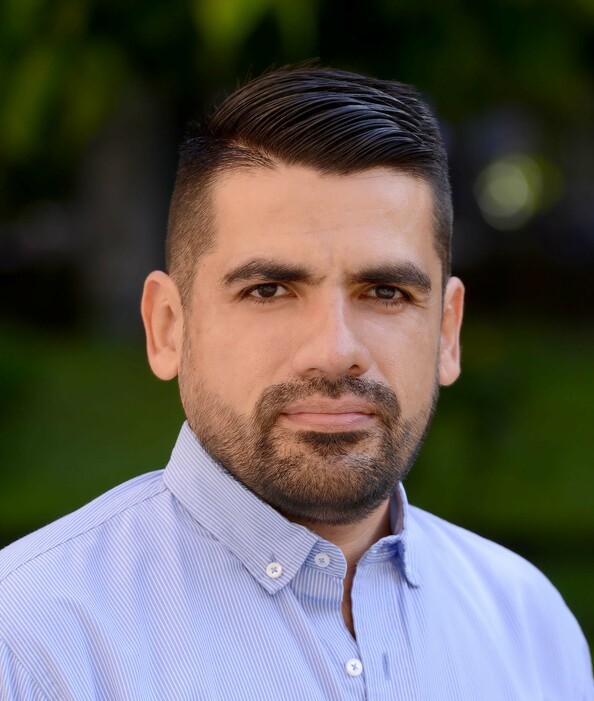
Metodología y estructura del taller
El taller se desarrollará utilizando la técnica Pomodoro. Esta estructura está diseñada para minimizar la sobrecarga cognitiva, favorecer la asimilación progresiva de los contenidos y optimizar el proceso de enseñanza y aprendizaje.
Resultados esperados Los participantes serán capaces de:
Recursos requeridos
Semblanza
Johany Armando Carreño Gamboa
Es evangelista tecnológico y mentor digital. Actualmente, se desempeña como Presidente Ejecutivo de la Sociedad Colombiana de Computación (SCo2), Director General de la Red Latinoamericana de Programación Competitiva (RPC Latam) y mentor del proyecto Colombia Programa, iniciativas que buscan fortalecer el pensamiento computacional y la programación en Colombia.
Sus áreas de interés incluyen el pensamiento computacional, la programación y el análisis de datos, con un enfoque en la aplicación de estas disciplinas para transformar la educación. Su pasión radica en la integración de tecnologías educativas en las aulas, promoviendo la participación de los estudiantes en prácticas STEM y brindando apoyo a los docentes para comprender e impulsar el pensamiento computacional en diversos contextos de aprendizaje.
Con una trayectoria consolidada en la enseñanza y en la promoción de la educación digital, ha trabajado en la implementación de estrategias innovadoras que fomentan el desarrollo de habilidades computacionales en jóvenes y docentes. Su liderazgo en redes académicas y comunitarias ha sido clave para la adopción y el fortalecimiento de enfoques tecnológicos en la enseñanza.
Yasblei Segovia.
Presidenta Comité directivo. RedÚnete
Panelistas:
Andrea del Pilar Rueda Duarte.
Universidad Javeriana (virtual)
Erika Duque.Universidad de La Sabana (presencial-1 noche hotel)
Ing. Nicolás Guarín.Universidad EAFIT
Camilo Vieira.Uninorte
- Edna Conde (Corporación Universitaria Adventista)*; Jhon Niño (Corporación Universitaria Adventista)
- Edna Conde (Corporación Universitaria Adventista)*; Luz Marcela Restrepo Tamayo (Universidad de Medellín); Jhon Fredy Niño Manrique (Corporación Universitaria Adventista); Gloria Piedad Gasca Hurtado (Universidad de Medellín); Saray Galeano Ospino (Corporación Universitaria Adventista)
- Karina M. Figueroa (Universidad Michoacana de San Nicolás de Hidalgo)*; Angel Ortiz (Universidad Michoacana de San Nicolás de Hidalgo)
- Diego Lopez Franco (Universidad de Caldas)*; Julio Cesar Caicedo Eraso (Universidad de Caldas); Rubén Dario Cárdenas Espinoza (Universidad de Caldas)
- Lina Marcela Ocampo (Universidad del Quindío)*; Sergio Augusto Cardona Torres (Universidad del Quindío); Robinson Pulgarín Giraldo (Universidad del Quindío)
- Jorge Suaza (Instituto Tecnológico Metropolitano)*
- María Eugenia González (Universidad Salazar y Herrera)*; Byron Portilla (Universidad Nacional de Colombia)
- Carolina Fontalvo (Universidad del Norte)*; Rafel Meyerhofer-Parra (Universidad de Girona); Camilo Vieira (Universidad del Norte)
- Jenny Ramirez (Universidad del Tolima)*; Carolina Robledo (Universidad del Tolima); Julian D Barrero (Universidad del Quindio)
- Jordi Serarols Boada (Departament d’Educació i Formació Professional, Generalitat de Catalunya); Roser Cussó Calabuig (Departament d’Educació i Formació Professional, Generalitat de Catalunya); Pepi Garrote (Departament d’Educació i Formació Professional, Generalitat de Catalunya); Ignacio Gálvez Ortega (Departament d’Educació i Formació Professional, Generalitat de Catalunya); Marta Peracaula-Bosch (Universitat de Girona); Rafel Meyerhofer-Parra (Universitat de Girona)*; Juan González-Martínez (Universitat de Girona)
- Eleonora Palta (Universidad del Cauca)*, Julio Ariel Hurtado.
- Carolina Robledo Castro (Universidad del Tolima)*; Maria Alejandra Reyes Parga (Universidad del Tolima)
- Liliana María García Aguirre (Institución Universitaria Pascual Bravo)*; Javier Alberto Saldarriaga Cano (Institución Universitaria Pascual Bravo); Yudy Andrea Quintero Tangarife (Institución Universitaria Pascual Bravo)
- Leidy Carvajal (Universidad del Valle)*; Deisy Chaves (Universidad del Valle); Maria Trujillo (Universidad del Valle)
- Byron Cuesta (UFPSO)*; Lugdy Alvarez (UFPSO)
- Carolina Robledo Castro (Universidad del Tolima)*; Luisa Fernanda Aya Camacho (Universidad del Tolima); María Alejandra Herrera Cárdenas (Universidad del Tolima); Greeyson Camilo Espejo Díaz (Universidad del Tolima); Laura Ximena Salcedo Martínez (Universidad del Tolima); Yeimy Yulissa Acevedo Pérez (Universidad del Tolima); Anggy Julieth Espinosa Capera (Universidad del Tolima); Camilo Vieira (Universidad el Norte)
- MARIANA ARBOLEDA FLOREZ (Universidad del Norte)*; Jennifer Chiu (University of Virginia); Camilo Vieira (Universidad del Norte)
- Marco Antonio Adarme Jaimes (Universidad Francisco de Paula Santander)*; Daniel Andres Esteban Carrillo (Universidad Francisco de Paula Santander ); Eduard Gilberto Puerto Cuadros (Universidad Francisco de Paula Santander )
- Lugdy Alvarez (UFPSO)*; Byron Cuesta (UFPSO)
- Gabriela de la Rosa (Universidad del Norte)*; Camilo Vieira (Universidad del Norte); Mariana Arboleda (Universidad del Norte); Juan David Parra (Erasmus University Rotterdam)
Fecha límite para recepción de artículos: 31 de mayo 2025. 8 de junio 2025
Notificación de resultados: 28 de junio de 2025. 2 de julio 2025
Fecha límite para recibir versiones finales: 10 de agosto de 2025.
Biviana Arango (Institución Universitaria Pascual Bravo, ![]() )
)
Johany Armando Carreño Gamboa (Mentor del proyecto Colombia Programa; SCo2, ![]() )
)
Karina Mariela Figueroa Mora (UMSNH, AMEXCOMP, ![]() )
)
Cinthia Maribel González Segura (UADY, AMEXCOMP, ![]() )
)
María Eugenia González Pérez (IUSH, ![]() )
)
Rafael Morales Gamboa (UDG, AMEXCOMP, ![]() )
)
Guillermo de Jesús Hoyos Rivera (UV, ![]() )
)
Marcela Quiroz Castellanos (UV, AMEXCOMP, ![]() )
)
Milton de Jesús Vera C. (UFPS, ![]() )
)
Camilo Vieira (UNINORTE, ![]() )
)
Comité del programa
Johany Armando Carreño Gamboa (Mentor del proyecto Colombia Programa; SCo2, ![]() )
)
Karina Mariela Figueroa Mora (UMSNH, AMEXCOMP, ![]() )
)
María Eugenia González Pérez (IUSH, ![]() )
)
Victor Kolezar (CEIBAL, ![]() )
)
Huitzilopoztli Luna (UAZ, ![]() )
)
Rafael Morales Gamboa (UDG, AMEXCOMP, ![]() )
)
Ángel Leonel Ortiz Herrera (UMSNH, ![]() )
)
Marcela Quiroz Castellanos (UV, AMEXCOMP, ![]() )
)
Milton Jesús Vera C. (UFPS, ![]() )
)
Camilo Vieira(UNINORTE, ![]() )
)
Contacto
Cualquier duda o comentario puede ser enviado al comité organizador del programa mediante la dirección de correo electrónico info@sipeco.org.
